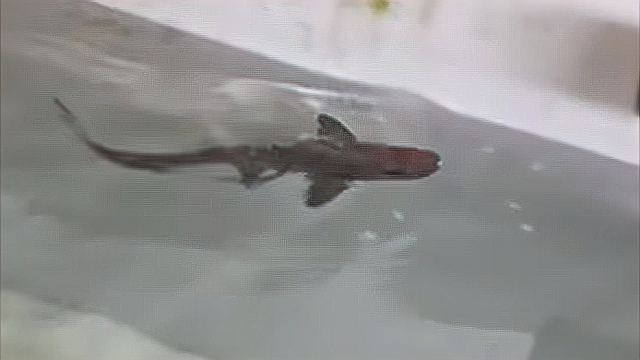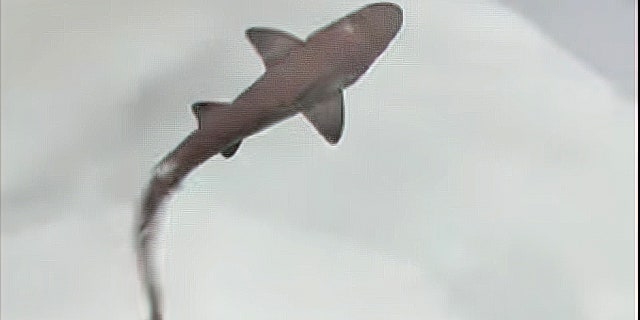Baby smooth-hound shark could be first confirmed case of asexual reproduction in species

[ad_1]
A shark born at Italy’s Acquario Cala Gonone could be the first case of asexual reproduction in its species.
The Sardinia-based facility says its female smooth-hound shark “Ispera” was born in a tank with only female sharks.
NEW YORK SHARK SIGHTING PROMPT NEW FLAG WARNINGS AT BEACHES
“#Ispera was born, a female palombo shark, probably from parthenogenesis, that is without the male’s intervention,” the aquarium wrote on Facebook, according to a Google translation of the post. “The mother lives in the large pelagic tub with another female specimen. If confirmed by DNA analysis, it would be the world’s first documented parthenogenesis documented by Mustelus Mustelus. Ispera, the name chosen for the little one, in Sardinian means hope and a birth in the [COVID-19] era it certainly is.”
Acquario Cala Gonone said in the comments section that it was still waiting on DNA testing to confirm this claim.
The organization cites parthenogenesis, a process in which the development of a female gamete occurs without fertilization by sperm, according to Encyclopaedia Britannica.
National Geographic explained that the forms of parthenogenesis include automixis and apomixis.
In automixis, small cells called polar bodies – also produced through meiosis with eggs – can merge with an egg to produce offspring and create offspring that are similar to the mother but not exact clones.
HOW TO REDUCE THE RISK OF A SHARK ATTACK
In apomixis, reproductive cells replicate using mitosis, forming genetically identical offspring.
Parthenogenesis, or “virgin births,” have previously been observed in tens of species including plants, insects, reptiles, birds, fish and other sharks as well.
The magazine noted the case of a zebra shark named Leonie that shocked caretakers at Australia’s Reef HQ Aquarium when she gave birth in 2016.

“Ispera” swims in her tank at Sardinia’s Acquario Cala Gonone
(Acquario Cala Gonone Facebook)
“One of the most common mechanisms that allow this type of reproduction is one where the egg is fertilized by another still immature egg cell, which actually acts almost like a sperm. Parthenogenesis can be optional in species that normally reproduce sexually, as in some reptiles, fish and even birds, and could be favored in very low-density populations, where females have little chance of meeting their partner,” Acquario Cala Gonone wrote.
“It would therefore be a scientific discovery of considerable interest, since it could pave the way for research aimed at verifying how parthenogenesis is a process that the palombes use even in nature,” it said. “We’ll keep you posted!”
While smooth-hound Mustelus Mustelus sharks of the Triakidae family prefer the temperate east Atlantic – including the U.K., Mediterranean, Morocco, Canaries, the Azores and Madeira, the Shark Research Institute shows, and they have also been found from Angola to South Africa and the Indian Ocean coastline.
CLICK HERE TO GET THE FOX NEWS APP
The gray and gray-brown shark is occasionally covered in dark spots and appears slender with a short head and snout and large close-set eyes.
At birth, the shark is just 1.3 feet in length and male sharks measure up to at least 5.6 feet, with females reaching at least 5.4 feet.
[ad_2]
Source link





